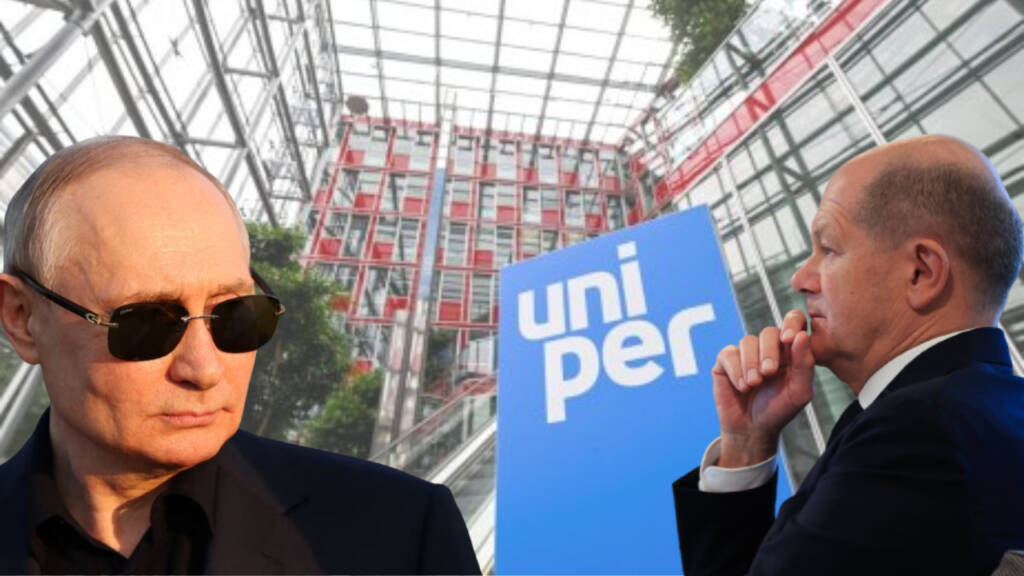Despite Western nations’ initial efforts to distance themselves from Russian energy after the Ukraine conflict, reality tells a different story. While on the surface it appeared Europe was reducing reliance on Russian LNG gas, major players like Germany were quietly depending on it. German energy giant Uniper openly acknowledged this. Russia’s LNG dominance remains steadfast, revealing a complex and interconnected energy landscape that challenges the West’s attempts to disengage.
German energy giant admits it’s still buying Russian gas
Despite Uniper’s pledges to halt Russian LNG purchases, the reality remains more complex. CEO Michael Lewis acknowledges that Russia continues to supply LNG to the world market, and wholesalers like Uniper may inadvertently receive Russian-sourced gas. Uniper had ceased Russian gas purchases in August 2022 due to sanctions linked to Ukraine, resulting in substantial losses.
While Germany currently has its gas storage facilities at 95% capacity, Lewis cautions that the upcoming winter could still pose challenges, particularly if there are issues with LNG procurement. He points out that a spike in demand from China could strain Europe’s LNG supply and lead to price surges.
Concerns about gas supply persist, with even minor disruptions potentially causing energy price increases. However, Lewis expects price hikes to be less severe than in previous seasons.
Read More: One move by Putin turns Spain into the most Russia-dovish country in Europe
Germany’s Ministry of the Economy supports ending Russian LNG imports, but admits it’s challenging for importers to avoid Russian deliveries since the origin of purchased gas is often untraceable. This situation highlights the intricate web of energy supply and geopolitical factors that influence Europe’s energy landscape, making it challenging for nations to entirely disentangle themselves from Russian energy sources.
EU imports record volumes of LNG from Russia
The European Union’s move towards reducing reliance on Russian fossil fuels by 2027 seems at odds with current trends. Despite this goal, the EU is on track to import record quantities of liquefied natural gas (LNG) from Russia this year. Belgium and Spain, in particular, stand out as significant buyers of Russian LNG, with China being the only country ahead of them in terms of imports. This increase is notable, with EU imports of LNG rising by 40% in the first seven months of this year compared to the same period in 2021, before Russia’s full-scale invasion of Ukraine.
This surge in LNG imports reflects a shift from the EU’s previous dependence on piped gas from Russia. While the global average increase in Russian LNG imports was 6% over the same period, the EU’s rise is much sharper. Global Witness, an NGO analyzing industry data, reported that the EU is importing approximately 1.7% more Russian LNG than during the previous record high in 2021, costing €5.29 billion.
Despite efforts to diversify energy sources, this reliance on Russian LNG, whether through pipelines or ships, raises concerns. Jonathan Noronha-Gant, a senior campaigner at Global Witness, expressed alarm, stating, “It doesn’t matter if it comes from a pipeline or a boat — it still means European companies are sending billions to Putin’s war chest.”
Russian Energy Returns in Record Volumes
Moreover, in July, Spain witnessed a substantial 65% increase in Russian natural gas imports compared to the previous year, positioning the country as the second-largest customer for Russian gas. Despite international calls for sanctions on Russian oil, Spain’s dependence on Russian gas rose significantly, constituting 28% of its total imports that month. This spike in reliance contributes significantly to Russia’s revenue, with the EU’s total purchases of Russian liquefied natural gas (LNG) estimated at $5.29 billion for 2023. Simultaneously, Czechia has experienced a notable uptick in Russian oil imports, even amidst EU sanctions. These imports, at their highest levels since 2012, mark a notable shift in the country’s energy dynamics.
Read More: Spain and Czechia Shocks the World as Russian Energy Returns in Record Volumes
In the grand ballroom of energy politics, Uniper pulled back the curtain, revealing Germany’s lingering dance with Russian gas. Despite efforts to exit the floor, the captivating moves of Russian LNG keep Europe entangled. The affair endures, a dance of dependency under the glittering chandeliers.
Watch More:
